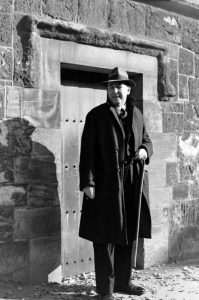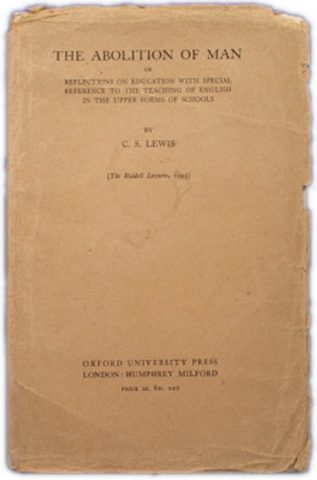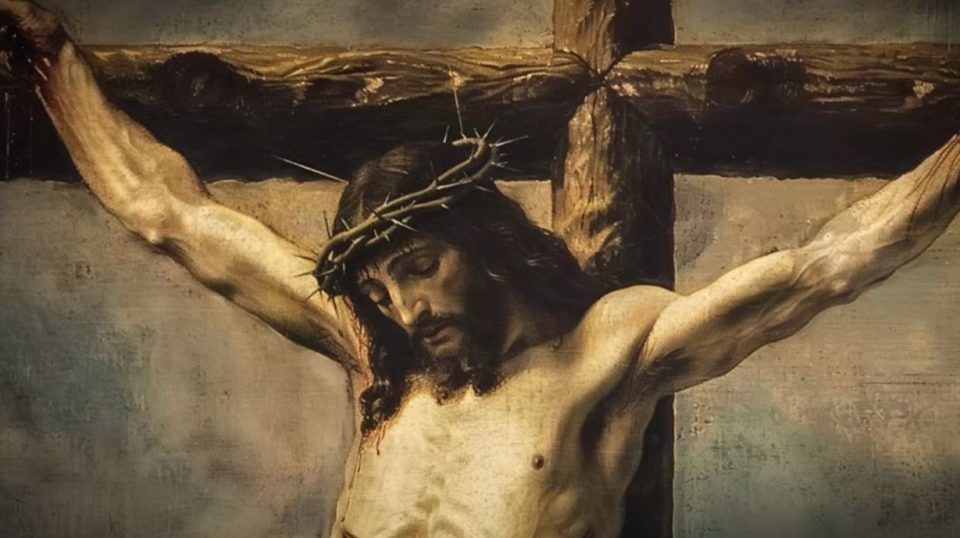By Luis E. Lugo, The Catholic Thing, Feb. 17, 2024
Luis E. Lugo is a retired college professor and foundation executive who writes from Rockford, Michigan.


C.S. Lewis in the 1940s
There is a short section in C.S. Lewis’ classic, The Abolition of Man, the 80th anniversary of whose publication we recently observed, that sheds some light on the current debates in the Catholic Church regarding what constitutes a correct understanding of the development of doctrine. Unlike his fellow countryman John Henry Newman, Lewis did not address the question of doctrinal development directly. Nevertheless, what he has to say in Abolition about progress in language and in traditional morality provides some valuable insights into the question of the development of Christian doctrine.
In Abolition, Lewis, who I believe can fairly be described as an Anglican with strong Catholic sensibilities in the way he thinks about the world, offers a vigorous defense of natural law, what he calls the Tao, in the face of what in another context he labels the poison of subjectivism. Having strongly affirmed the objective, universal character of these first principles of practical reason, Lewis poses this question: “Does this mean, then, that no progress in our perceptions of value can ever take place?” On the contrary, he argues, “some real development is required.” But what constitutes genuine development as opposed to a corruption, a mere break with traditional morality? …
Continue reading >>>>>>>>>>








